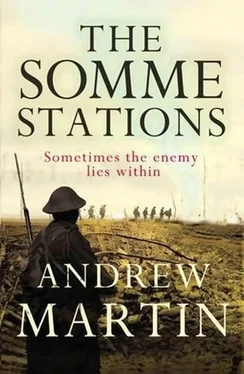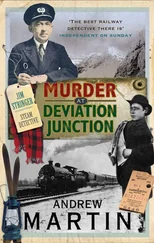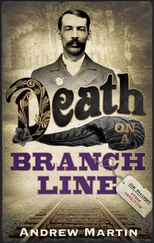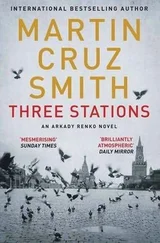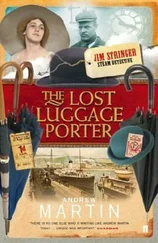I heard bootsteps from outside; the door banged open, bringing in the noise of a train whistle, traces of a hot black cloud, and Old Man Wright. I distinctly recall thinking: there’s a bloody great empty space in the middle of this notice-board, when Wright leant over my shoulder and fixed a notice into that very spot with a single pin. I read:
PROPOSED FORMATION OF A NORTH EASTERN RAILWAY BATTALION
In order to meet the case of those who would prefer to enlist among men whom they know, application has been made to Lord Kitchener for authority to enrol a North Eastern Railway Battalion of his new Army, and if sufficient support is given it is hoped that sanction will be obtained. The Directors feel that many men who might otherwise hesitate to serve among strangers would be prepared to join such a battalion.
All trained men 45 years of age and under and untrained men 19 to 35 years of age should apply to their District Officers for full information.
‘Bugger,’ I said, and Wright gave out a single bark of laughter. I now did turn about, and he was watching me with a kind of smirk.
‘Actually, I’d been hoping the Company would form its own unit,’ I said.
Wright pulled a face, as if to say: ‘Don’t come it.’
‘You’ll be training at Hull,’ he said. ‘They’ve commandeered Alexandra Dock.’
I figured the docks at Hull, and could picture nothing but rain.
Wright himself was out of it, of course, being in the middle sixties, as was the Chief. The difference was that the Chief resented the fact. The first Kitchener appeals posted up about York had asked for men aged up to thirty, which had put me out of it as well, since I was thirty-two, but the Chief had offered – with no prompting on my part – to write me a special letter of recommendation to get round the difficulty. That would not now be necessary, since the War Office seemed to be raising the upper age limit by the week.
‘I must do my duty,’ I said to Old Man Wright, ‘England’s in peril.’
‘Too bloody true,’ he said, sitting down at his desk and unfolding that day’s edition of the Yorkshire Evening Press . His head was grey, bald and too small – like a turkey’s head, which he now began moving from side to side.
‘A hundred and sixty-three killed…’ he said. Looking up at me, he added, ‘Over four thousand wounded… Peer’s son dies of wounds received at Mons,’ he was saying as I quit the police office.
According to the Yorkshire Evening Press , we kept thrashing the Germans; they kept reaching ‘the limit of their effort’, and yet our men would keep dying. Something was amiss – the Chief had told me as much himself.
I decided to scout him out, and as I stepped out onto platform four, a train came in and I caught a small shower of condensed steam. Our little girl, Sylvia, had a word for this: a ‘train cloud’. Not a rain cloud, but a train cloud. She was clever with words. The fireman, leaning off the footplate, gave me a grin, which might have been by way of apology. I gave him a wave back anyhow. Footplate men were in reserved occupations, so he could afford to smile.
A man sat on a baggage trolley outside the First Class waiting room. His suit told me he wanted to be in there but wasn’t up to the mark. He too read the Press , and I saw: ‘The War Will Not Make Any Difference to Dale and Dalby’s. They Have Started Their Summer Sale’. The London train was unloading on my right side as I walked. A scruffy porter brought down a tin trunk rather roughly from a First Class carriage, and the man standing in the doorway, topper in hand, called out, ‘Be careful with that piece!’
I knew that porter – name of Bernard Dawson – by reputation. He was from down south. He was evidently fond of a glass of wallop, and his face was crumpled in such a way that you could tell he was a cockney just by looking at him. Also his moustache was famous on York station. It was hardly there. It was as if he’d drunk some brown Windsor soup about a week before and not washed since. The Night Station Master, Samuels, had a campaign against it, said it put off the passengers, that Dawson should either shave or let it grow out. But Dawson paid no mind. He was his own man. That said, he didn’t take against the man with the topper.
‘Sorry, guv,’ he said.
Topper hadn’t heard him, since he was being pestered by his wife in the carriage doorway: ‘But I want a change of magazine’, she was saying.
Ahead, and to the left of me, two engines stood alongside each other at the bay platforms, three and two. One of the North Eastern’s 4-6-0s and one of Lancashire and Yorkshire Railway’s of the same wheel arrangement. A lad looked on, comparing them. I’d seen him about; I believed he was a cleaner in the North Shed, an aspirant driver as I’d once been myself. The first engine – ours – was not over-clean, whereas the other gleamed.
I nodded at the kid, saying, ‘I reckon the Lanky’s shown us up there.’
‘That’s just what I was thinking,’ said the lad, and he coloured up, being a loyal company servant. Beyond him, I saw two gangers or platelayers entering the station from the south end: two blokes who looked like gypsies – dark, and long-haired; they were railwaymen, but dressed anyhow, in old corduroy suits. That was one privilege of the permanent way men; another was that they could enter a station by walking on the tracks. There weren’t too many besides those.
I walked through the ticket gate, with hands in pockets. It was something to be able to saunter in and out of the principal traffic centre of the North without needing a ticket; it was something to be a three pound ten a week man set fair for promotion to inspector. It was something, but not enough. I had been growing bored, and the thought of fighting in a war excited as well as scared me. For much of the past few years, I had lived a quiet life under the iron station arches, like Jonah sleeping in the belly of the whale.
I crossed in front of the bookstall. ‘A Railway Battalion’ I read, on the board advertising that day’s Press . I walked through the booking hall, with the ticket windows on each side. The glass above was cleaner here, there being no engines, and the light was bright blue. This was the clean side of the station – and filled at all times with the echoing voices of the ticket clerks, who had to shout through the ‘pigeon holes’ in the window glass.
‘First Class return?’ I heard a clerk calling out to a man in a dinty bowler. ‘That’ll be four pounds ten and six!’
Dinty bowler turned his head aside, thinking it over.
‘Maybe not, eh?’ the ticket clerk yelled through the glass.
Beyond him, in the hot darkness of the booking office, I saw the ticket office deputy superintendent. I saw him in profile. He was not shouting, but smoking a pipe and staring into the middle distance. He was of an age with me but looked older; a little overweight, freckled, with wavy red hair – and quiet natured, evidently something of an intellect. He’d once said something about Homer, the ancient Greek, and so the ticket clerks all called him ‘Oamer’. I couldn’t recall his right name. Would he be going off to fight? He was the wrong shape for a soldier, and that was fact.
I walked on towards the booking hall doors, which were all propped open for ventilation. Beyond lay the rushing trams and cabs and the high, blue sky of York. I made for the middle doors, and there I coincided with the Chief, who was coming in, but before I could speak to him, the station runner came up. The runners were generally just ‘The Lad’, but the better – or better liked – ones would graduate to a name, and this one was William, and was famed for the speed with which he charged about the place. He handed the Chief an envelope, and the Chief hardly looked at it, but asked William, ‘You’ve seen about the battalion?’
Читать дальше
